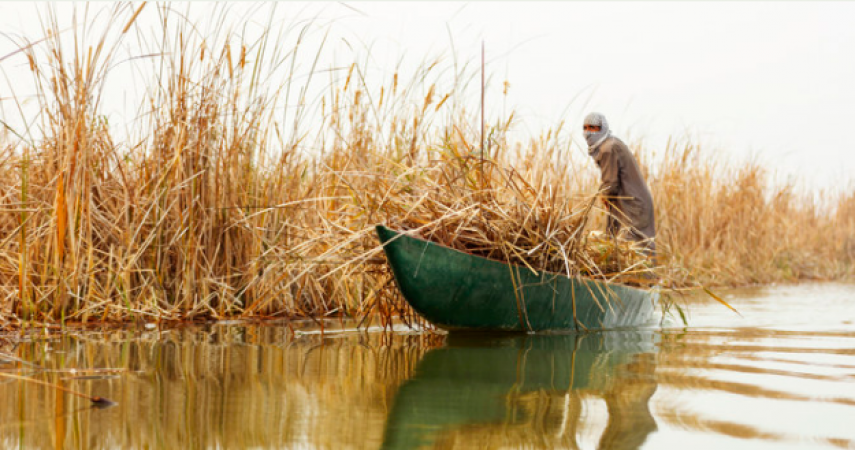
Washington: Climate change is already taking place, and as temperatures rise, oceans warm, sea levels rise, and already scarce freshwater resources in some areas decrease, its effects will only worsen. Conflict and migration will be exacerbated by this, especially in the Middle East and Africa's poorest and most vulnerable countries.
This was one of the messages from attendees at a panel discussion on the topic of "Climate Injustice?," which was held on Wednesday at the Middle East Institute in Washington. How less developed countries are bearing the brunt of climate change.
In comparison to wealthy, developed Western countries, many poorer nations contribute less to the carbon emissions that cause climate change, but they bear the brunt of its effects, according to Mohammed Mahmoud, director of the institute's Climate and Water Program.
Also Read: UN warns of aid reductions due to Taliban's suppression of women's rights
According to him, three main factors determine which nations are most likely to suffer from the effects of climate change both now and in the future.
First of all, as sea levels rise, countries with extensive coastlines and island nations run the risk of losing land mass and flooding. Additionally, the intrusion of saltwater could "compromise" their sources of fresh groundwater.
Second, even small increases in global temperatures can have a significant impact on countries with a high heat index, particularly those that are close to the equator and receive a lot of solar radiation.
The third and most crucial factor, according to Mahmoud, is the present scarcity of fresh water in some nations.
The distinction between these broad categories is made interesting by the fact that they are all found in the Middle East and North Africa region, the author continued. The likelihood of crises related to climate change increases as more of these problems are faced by nations in the region.
Also Read: Bakhmut may soon fall to Russian invaders the NATO chief warns
The panelists concurred that a country's ability to effectively combat the impending threats of climate change is greatly influenced by its economic strength, or lack thereof.
Countries in East Africa, for instance, which are already dealing with the worst drought in decades and have fragile economies, will be less able to deal with the effects of climate change than, say, a Gulf country like Bahrain, which is water-stressed but much better equipped economically to deal with potential problems
Mahmoud stressed the importance of nations' financial capacity to address climate change-related issues, including their ability to pay for the tools and technologies they require to address their particular issues. The right education and training must also be a part of the overall plan to lessen the effects of climate change, he continued.
Financial stability is crucial, but according to Ayat Soliman, the World Bank's regional director for sustainable development for Eastern and Southern Africa, there is a certain amount of "injustice" in how various countries are impacted by the global issue of climate change.
She claimed that "we see climate charts are increasing in terms of its intensity" in Africa and the Middle East. She added that many parts of Africa, for instance, are going through their worst drought in years and that millions of people are going hungry.
Since some of the most vulnerable people in the world are being impacted by climate change in Africa, Soliman predicted that there will be a large-scale migration as a result. According to World Bank research, about 90 million people will be forced to leave their homes and find new residences over the course of the next 20 years as a result of the effects of climate change. The already pressing problem of food security in less developed countries will be exacerbated by this.
Soliman predicted that the majority of those packing up and moving will be the poor, the weak, and those who live in rural areas. Conflicts all over the world are and will continue to be caused by climate stress.
Also Read: Islamic leaders condemn the Taliban's actions and media representations of Muslim women
The president and co-founder of the Mediterranean Youth Climate Network, Hajar Khamlichi, stated that young people in the most severely affected areas have a crucial role to play in the successful implementation of international agreements that guide global action on climate change. As a result, it is crucial that they participate in the process and are heard, which is not always the case.
He added that this failure has an impact on national and international strategies to combat the effects of climate change. "The voice of young people is not heard in the Arab World," he said.